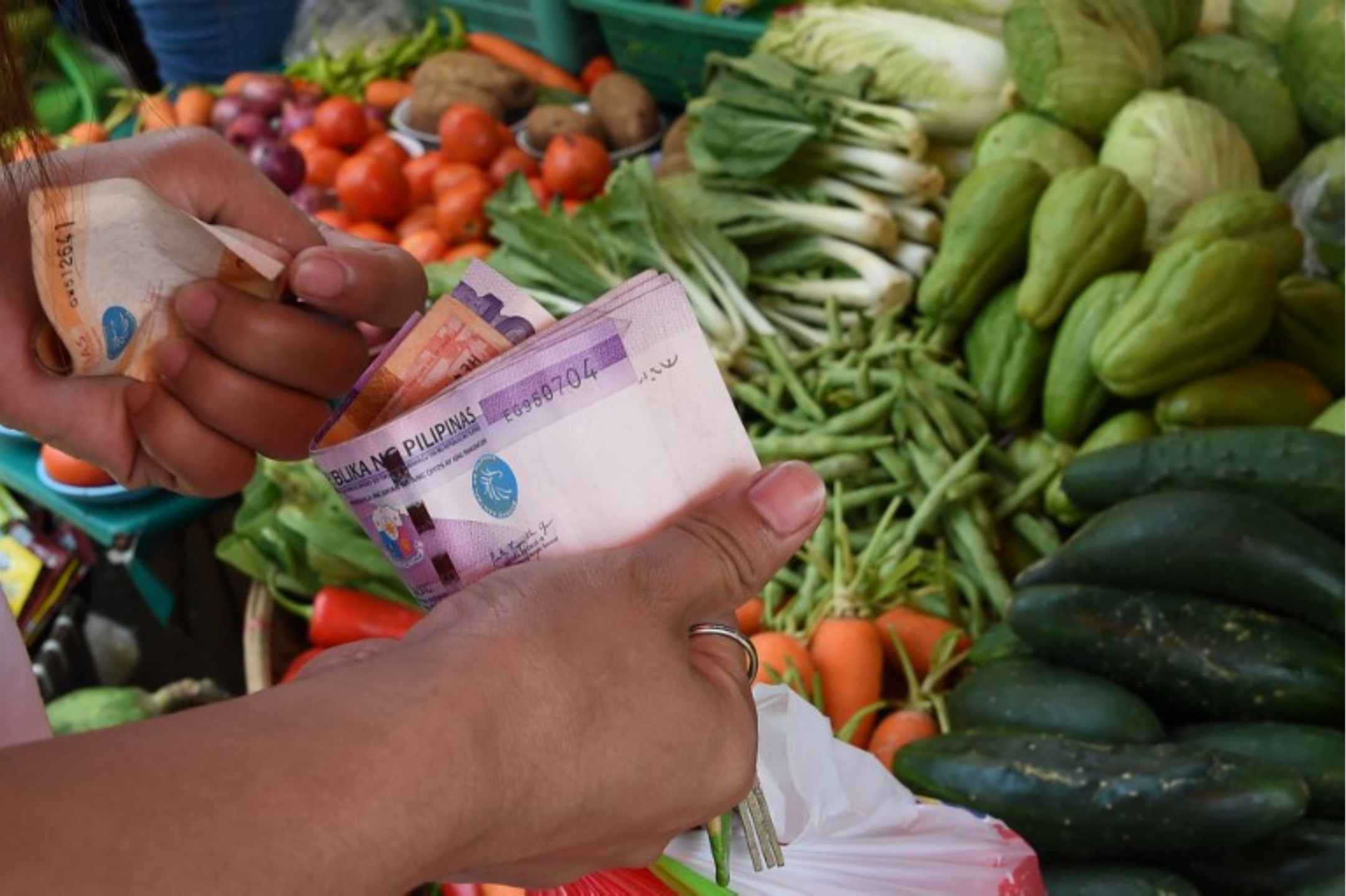

A buyer buys greens at a market in Manila on October 5, 2018. (Picture by TED ALJIBE / AFP)
Philippine inflation in July surged to a nine-month excessive of 4.4 %, fueled by rising costs in housing, utilities, transport, and meals, the Philippine Statistics Authority (PSA) reported on Tuesday.
Preliminary information from the company confirmed that the patron value index accelerated from the three.7 % in June, however slower than the 4.7 % recorded in the identical interval final 12 months.
The July print did fall throughout the estimate of 4-4.8 % of the Bangko Sentral ng Pilipinas (BSP), but it surely marks the primary time that inflation breached the central financial institution’s 2 to 4 % goal vary for the 12 months.
READ: July inflation accelerates to 4.4% – PSA
The July consequence additionally exceeded the 4-percent common inflation forecast in an Inquirer ballot of 11 economists carried out final week.
Inflation print in July marked the quickest development in 9 months or for the reason that 4.9 % logged in October 2023.
For the primary seven months, inflation averaged 3.7 %, considerably decrease than the 6.8 % in July 2023.
The federal government attributed the upper inflation to costlier water, electrical energy, housing and fuels, whose costs rose by 2.3 % in June from 0.1 %. It contributed 70.4 % to the general inflation final month.
“In energy, we anticipated that as a result of the Manila Electrical Co. (Meralco) charges have been adjusted in July. We actually have a giant contribution to inflation. What actually contributed to inflation this July is first energy, so you will have electrical energy after which vitality, our gasoline, diesel, after all, LPG too,” Nationwide Statistician Claire Dennis Mapa stated in a briefing.
Meralco final month elevated electrical energy charges by P2 per kilowatt-hour (kWh) to P11.6012 per kWh.
The closely weighted index for meals and nonalcoholic drinks additionally drove the sooner inflation because it quickened by 6.4 % from 6.1 %, contributing 17 % to the general inflation.
Prime contributors
Among the many high commodities that contributed to the inflation have been rice, home leases and gasoline.
Rice inflation, nonetheless, did ease to twenty.9 % in June from 22.5 % within the earlier month.
Regardless of the slower inflation, Mapa emphasised that rice costs may solely lower in August because the impression of the tariff minimize begins to take impact.
“By way of the worth of rice or rice inflation, which contributes considerably to total inflation, it’s attainable that we’ve got a base impact to decelerate rice inflation in August,” Mapa stated.
Rice inflation contributed 1.6 proportion factors to total inflation or round 37.2 %.
For Ruben Carlo Asuncion, chief economist at Union Financial institution of the Philippines, even when the provision of rice will increase, it may not lead to considerably decrease rice costs regardless of decreased import tariffs.
“I feel at this level the one problem could be climate disturbances, which haven’t registered within the July studying, if in any respect it would register,” Asuncion stated.
In the meantime, the Nationwide Financial Growth Authority stated that the federal government is taking steps to help weak sectors and guarantee meals safety amid the La Niña phenomenon and better inflation. INQ

